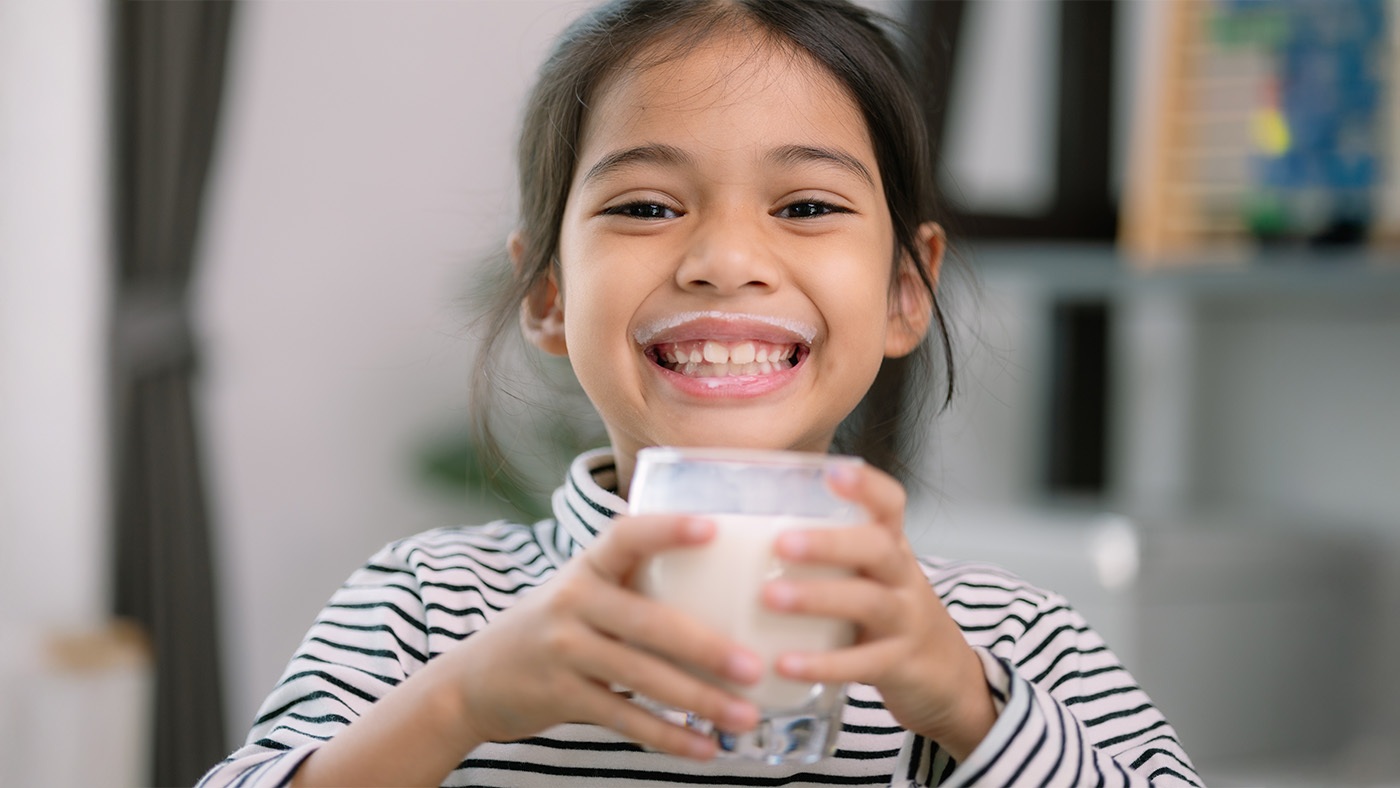If you’ve ever negotiated with your child over what they’ll drink, you’re definitely not alone. Many parents struggle to find the balance between giving kids something they enjoy and making sure it’s the healthiest choice. Between the colorful juice pouches, the comfort of milk, and the simplicity of water, it can feel like a daily battle.
Despite the negotiations, it’s important to remember that everything your child eats and drinks has an impact on their teeth. Dark-colored drinks can discolor or stain teeth, while other beverages can feed cavity-causing bacteria or erode the protective enamel. Drinks can coat your teeth even more than food and snacks do, so they play a big role in your child’s lifelong dental health.
When figuring out whether a drink is healthy for your child’s teeth or not, there are four things to consider: acidity, sugar content, carbonation, and color.
Acidity: All beverages have a pH level, which defines how acidic or alkaline they are. Highly acidic drinks run the risk of softening or damaging tooth enamel. While some drinks are worse than others, sugar-sweetened drinks, sodas, and fruit juices are all acidic.
Sugar content: Sugar doesn’t damage your child’s teeth directly, but it does feed harmful bacteria living inside our mouth. Those bacteria then produce harmful acids, which can damage tooth enamel and open the door to cavities and tooth decay. On average, it takes about 20 minutes for the pH level in your child’s mouth to return to normal after eating, snacking, or drinking sugary beverages.
Carbonation: The bubbles in your favorite soft drink come from carbon dioxide (CO2) dissolved in water, creating carbonic acid. Some soft drinks are even more acidic than fruit juices, and drinking too many of them can damage your child’s teeth.
Color: Dark-colored drinks like coffee, dark teas, fruit punch, and dark sodas can stain your child’s teeth. Rinsing with water and regular brushing can help reduce the risk of stains. Avoiding dark drinks is especially important while wearing braces to prevent uneven staining.
The Best Drinks For Supporting Your Child’s Dental Health
With all the drink options available on the market today, from tap water to soda and everything in between, many parents can be left wondering how to stock the fridge in a healthy way.
Water: Water is the healthiest option available; it hydrates better than anything, and its neutral pH is gentle on your teeth. In fact, water rinses your teeth clean and helps reduce the damage done by other food and drinks.
Sparkling water: While carbonation is a risk factor for dental damage, drinking sparkling water is probably fine. Carbonated water is more acidic than still water, but according to the American Dental Association has shown no real risk to your teeth.
Milk: Often considered the second-best option after water. Proteins in milk form a protective film on your teeth. Milk also has vitamins, calcium, and phosphorus, which can repair damaged enamel. Plant milks are becoming increasingly popular among kids and adults. When choosing a plant milk alternative, look for calcium-fortified options to maximize the benefits.
Tea: Black and green teas are a source of fluoride and may contain compounds that reduce plaque. Remember, the benefits of tea can be undone by adding a bunch of sugar.
Drinks Your Child Should Avoid Or Limit
Limit your child’s exposure to drinks that are too sugary, too dark, or too acidic. Anything with a pH below about 4 can damage tooth enamel, especially if your child drinks it often. Remember, it takes about 20 minutes for the pH in your child’s mouth to return to normal, and the clock resets every time they take another drink.
Fruit juice: While fruit juices can be healthy in small amounts, full of vitamins and nutrients, they contain a lot of sugar, which can damage your child’s teeth.
Soda: Sugary carbonated drinks are like a one-two punch for your child’s teeth. In fact, some sodas are among the most acidic drinks on the market. Carbonic acid from the carbonation can weaken enamel, sugar feeds cavity-causing bacteria, and the dark color of sodas like cola can stain your child’s teeth.
Sweet tea: Dark teas can cause staining, and sweet tea has a high sugar content, which can lead to cavities and tooth decay.
Kombucha: This increasingly popular drink has plenty of health benefits, including probiotics and antioxidants, but it is acidic. Drinking kombucha on a regular basis can weaken enamel and damage your child’s teeth.
Energy drinks: Popular among kids (especially teenagers), energy drinks commonly have high acidity and high sugar content, which may lead to an increase in behaviors like grinding teeth, potentially causing damage.
If your child is going to have sugary, acidic, carbonated, or dark-colored drinks, there are a few things you can do to minimize the risk of cavities and tooth decay. Have your child enjoy their non-water drinks in a single sitting, instead of spreading them out throughout the day. Drinking soda or juice with a meal also helps to balance the pH inside your child’s mouth.
Use a straw so that most of the liquid bypasses your child’s teeth. Pair dark drinks with fruits and vegetables that are high in fiber to reduce the risk of staining. Finish off with a small glass of water to rinse away acids and excess sugars.
Make sure your child is brushing regularly, but not immediately after drinking acidic or sugary drinks. Wait 20 – 30 minutes to avoid damaging teeth while the enamel is still soft and vulnerable.
Balancing Health Without Sacrificing Happiness
No one expects you or your children to go the rest of their lives without enjoying some fresh-squeezed orange juice or the crisp, refreshing feeling of a cold soda on a hot day. It’s all about balance. Educate your children about the risks associated with certain beverages and how to protect themselves against those risks.
Remember the four dangers: acid, sugar, carbonation, and color. Limit risky drinks, keep up on good dental hygiene, and when in doubt, reach for a glass of water.




